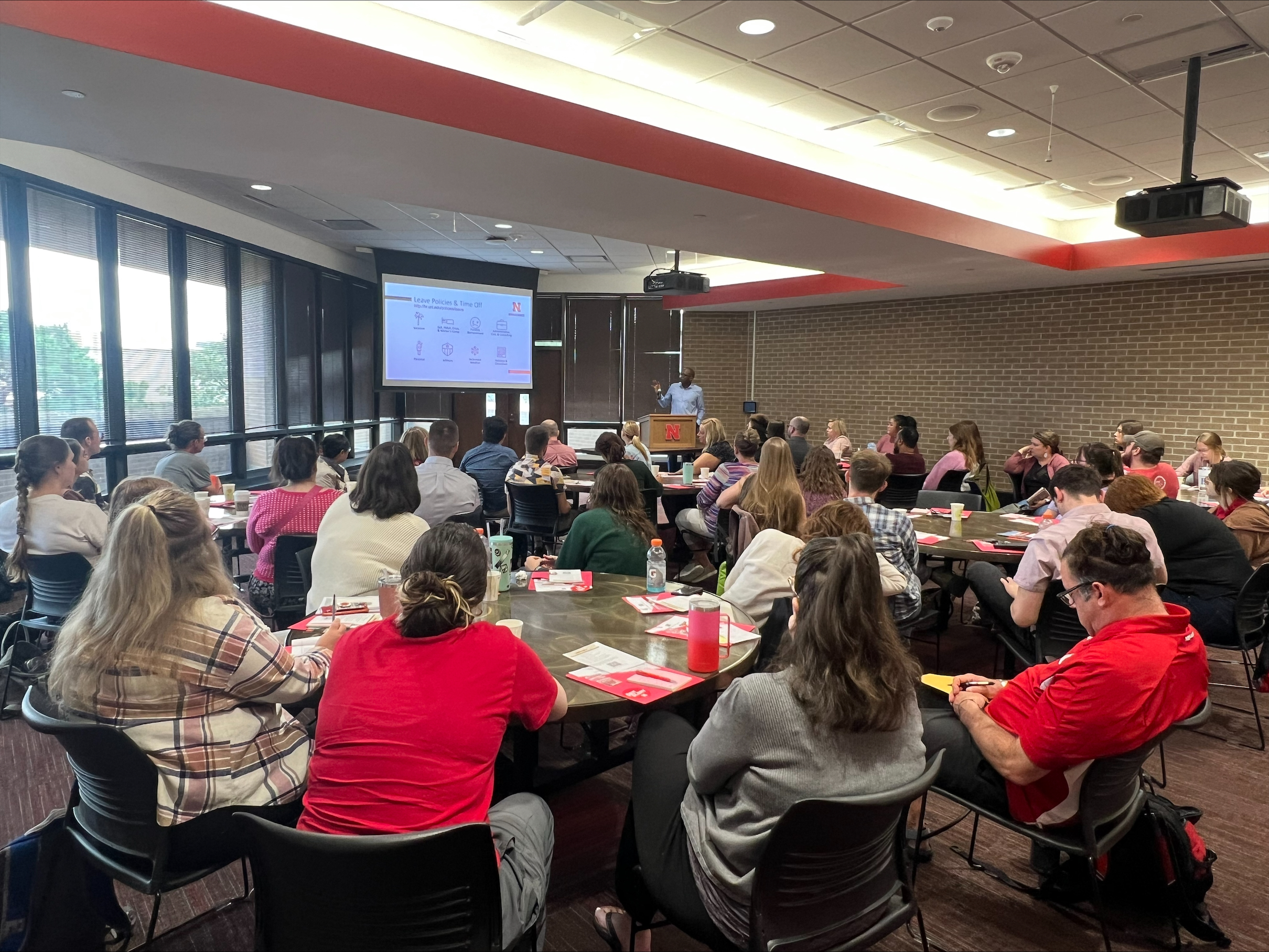Content
ODT Education Request
Additional Campus Learning Opportunities:
- Request an EAP Educational presentation.
- Request a HealthierU representative to present a 30-minute presentation to your staff about using the Wellness Portal.
If you see any training on campus that is not on this list but should be, please email training@unl.edu.
